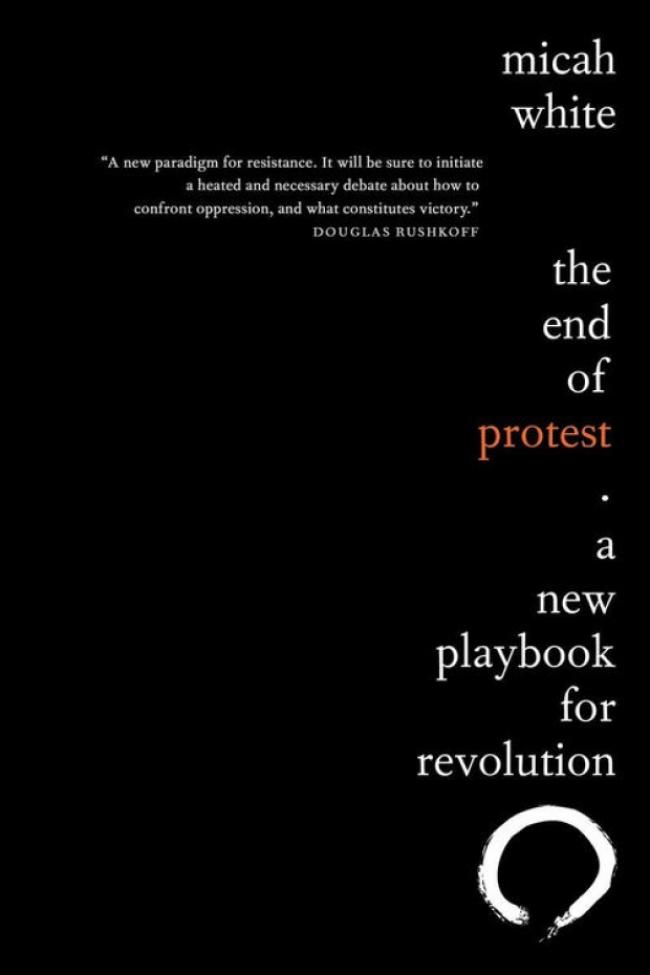Articles Menu

[Editor's note: This is an interesting interview with Micah White with Carol Off on White's new book The End of Protest: A New Playbook for Revolution. You really need to listen to the interview. Here is the link to the audio:http://www.cbc.ca/radio/popup/audio/listen.html?autoPlay=true&clipIds=&mediaIds=2686076146&contentarea=radio&subsection1=radio1&subsection2=currentaffairs&subsection3=as_it_happens&contenttype=audio&title=2016/03/28/1.3509505-occupys-micah-white-calls-for-new-vision-of-social-activism-with-the-end-of-protest&contentid=1.3509505 ]
It was a global movement that started with a single email. In 2011, the British Columbia-based magazine Adbusters sent out a striking poster to thousands of its followers. It was a ballerina, poised on a sculpture of a bull that sits in New York's financial district. The text read: "Occupy Wall Street, September 17. Bring tent."
Micah White was the driving force behind that first idea, which eventually saw thousands of people camped out in cities worldwide, demanding change.

In this Oct. 5, 2011 file photo, a coalition of students and supporters from New York University and The New School march towards Zuccotti Park in lower Manhattan in New York, where hundreds camped in the ongoing Occupy Wall Street protest. Vancouver-based Adbusters magazine audaciously called for 20,000 "redeemers, rebels and radicals" to flood lower Manhattan and occupy Wall Street. (Bebeto Matthews/AP)
Now, White's new book The End of Protest presents an even more radical vision. He challenges ways activists have pushed for change for generations, offering the provocative idea that the current strategy of protesters massing on the street and issuing demands of politicians, simply no longer works. He even takes to task the Occupy movement, which he helped create, for no longer being relevant.
White joined As It Happens host Carol Off in studio to discuss the future of protest and what he calls a new "playbook" for social activism. Here is part of their conversation.
Micah White: I'm not disillusioned, absolutely not. On the contrary, I think that the end of protest is part of the natural cycle of social change and that we break out of it. I think that Occupy Wall Street was an example of us breaking out a period of sustained end of protest. I think that instead, I'm trying to hasten the breakout of the end of protest, by kind of naming it and pointing to it and saying "Hey, we're in a period where protest is ineffective, it's not going to be like that forever but it could be like that for a long time and we need to get out of this as quickly as possible," which is why I wrote a book about innovating new tactics of protest to break out of that.